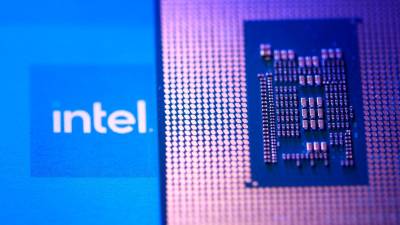WASHINGTON: President Donald Trump has expressed his desire to replicate the Intel equity model across other American industries, creating unease within the business community.
The administration recently acquired a nearly 10% stake in Intel by converting government grants into equity shares.
Trump confirmed his intention to pursue similar arrangements during a White House press briefing on Monday.
“I hope I’m going to have many more cases like it,“ Trump told reporters.
This interventionist approach marks a significant departure from traditional US economic policy, which historically limited government stakes to emergency situations like the 2008 financial crisis.
Intel maintains a substantial financial position with nine billion dollars in cash reserves and a market valuation of 105 billion dollars.
Critics argue that the administration’s growing involvement in corporate affairs threatens American business agility and free-market principles.
Bill George, former Medtronic CEO and Harvard Business School fellow, described the shift as fundamental.
“We’re moving from a pure capitalistic economy to a much more state-engaged economy,“ George observed.
Trump promoted his industrial strategy through social media, promising support for companies making “lucrative” deals with US states.
The president emphasized the need for increased domestic production capacity in critical industries rather than outsourcing manufacturing abroad.
Intel’s regulatory filing highlighted potential risks from government involvement, including possible harm to international sales and complications securing future grants.
Intel CEO Lip-Bu Tan expressed enthusiasm for the government’s participation despite these concerns.
“I don’t need the grant, but I really look forward to having the U.S. government be my shareholder,“ Tan stated in a Commerce Department video.
Republican Senator Rand Paul condemned the approach as a move toward socialist policy.
“If socialism is government owning the means of production, wouldn’t the government owning part of Intel be a step toward socialism?” Paul questioned.
Analysts raised concerns about potential market distortions and government influence over corporate decisions.
Bernstein analyst Stacy Rasgon questioned whether the administration might “encourage” customers to use Intel’s capacity.
The Intel investment follows previous government interventions in various sectors, including steel and rare earths production.
The White House facilitated Nippon Steel’s acquisition of US Steel while retaining a “golden share” providing operational oversight.
Administration officials secured revenue-sharing agreements with chipmakers Nvidia and AMD regarding Chinese market sales.
White House economic advisor Kevin Hassett confirmed the government might acquire additional corporate stakes.
Trump has demonstrated involvement in diverse business matters, from advertising campaigns to corporate hiring decisions.
The president suggested Goldman Sachs replace an economist who criticized his tariff policies.
ValueEdge Advisors chair Nell Minow expressed astonishment at presidential interference in corporate employment matters.
“The president of the United States is telling Goldman Sachs they should fire an employee? That’s crazy,“ Minow stated.
Corporate leaders have maintained regular contact with the administration since Trump’s 2024 re-election.
Industry representatives report that access primarily depends on CEOs from major corporations initiating White House contact.
Business groups nevertheless experience surprises regarding trade policy, particularly concerning import tariffs.
A retail industry source confirmed widespread frustration with Trump’s trade approach among member companies.
CEO meetings have produced notable moments, including Tim Cook presenting Trump with a custom gold plaque.
Apple has announced substantial US investment plans while shifting production from China to India.
The administration has suggested Apple could manufacture smartphones domestically despite limited US production capacity.
Harvard Business School’s Bill George highlighted the fundamental question facing corporate America.
“I think companies are just starting to realize, how much control do you want to give up and how much ownership do you want to give up to the government?” George asked. – Reuters
